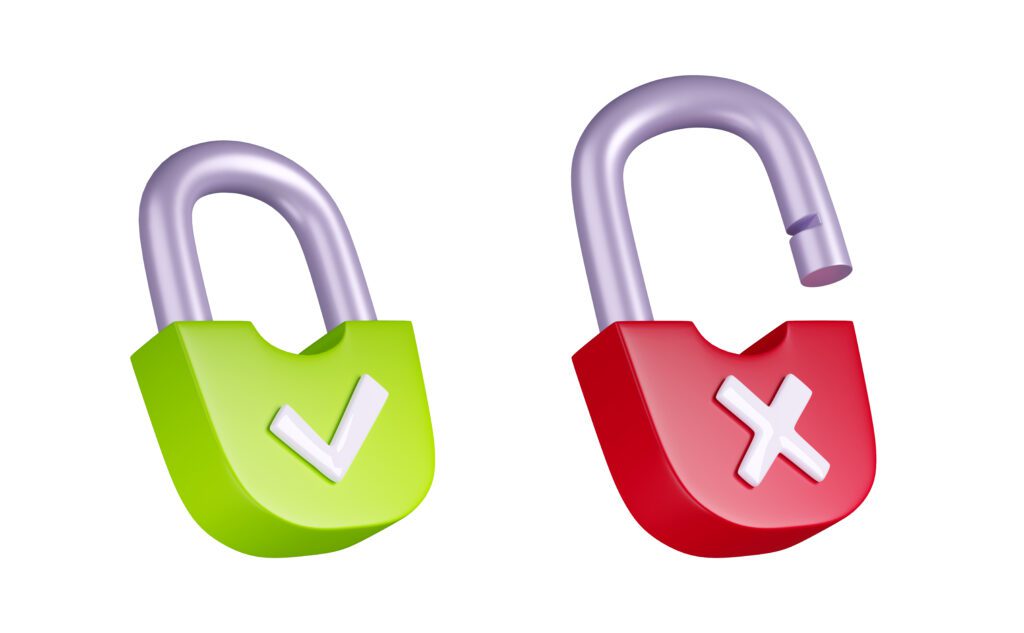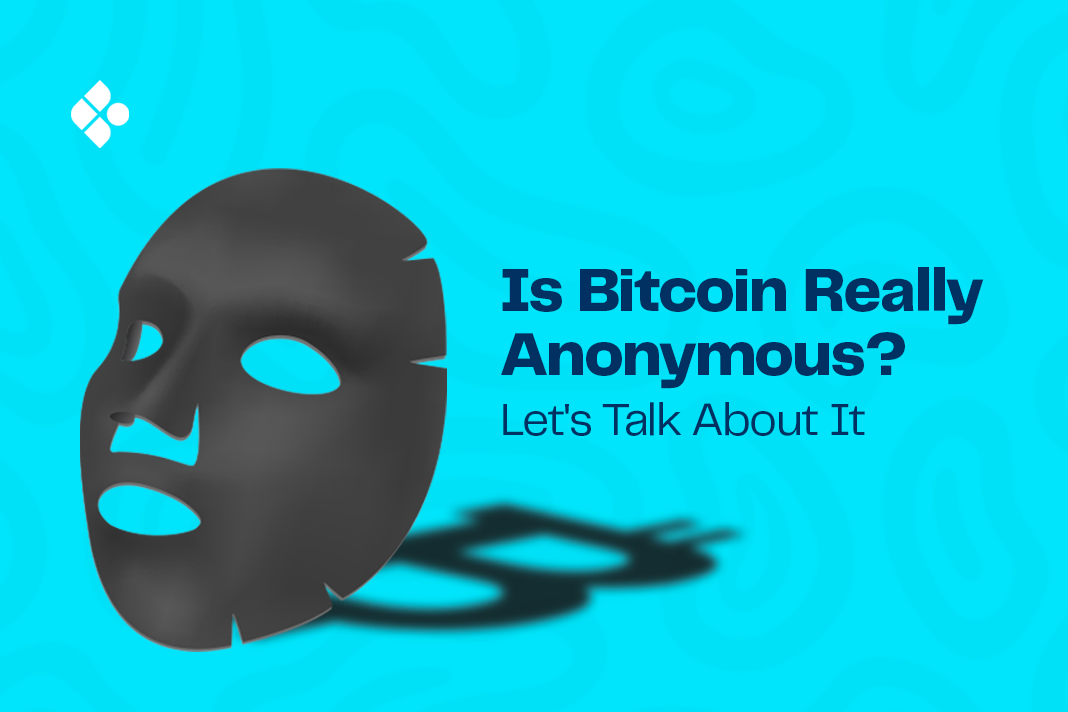Quick question: What attracted you to the blockchain? Was it because of its decentralisation, transparent yet anonymous nature? Well, I have news for you: You’re right about the first two. However, blockchain anonymity begs to be questioned.
To answer simply, Bitcoin —or blockchain—doesn’t give anyone complete anonymity. Even though this was one of the side attractions to the blockchain, we’ve seen too many fraudulent people get caught to know that this is not entirely true. But don’t worry if you’re counting on the anonymity of the blockchain and your data – there’s a way around it.
So, stick around if you want to get the full gist of Bitcoin/blockchain anonymity. In this article, I’d give you the full disclosure, so you’re better informed on the true nature of the blockchain and can act accordingly.
Interested? Take a read.
Understanding Bitcoin and Blockchain
What is Blockchain?
Blockchain is a database shared and maintained by a network of computers called nodes. Each block comprises of the last block’s hash, the transaction time, and the data. Due to the shared data, it’s difficult to change data or hack the network because all nodes will notice and reject the tampered node’s entry.
I like to give the example of a spreadsheet in a supermarket, where many computers have an identical copy with the exact transaction entries. Now, imagine if anyone tries to tamper with the transactions —it will be clear to other computers that some shady business is happening.
What is Bitcoin?
I have exhaustively explained Bitcoin in a previous blog post that you can check out anytime here. But I’d still like to give you a brief overview of what it is.
Bitcoin is a digital currency not generated by central authorities and can be used as a value exchange or invested in as an asset. Bitcoin is decentralised, and transactions are verified by a network of computers called miners.
The link between Bitcoin and blockchain

Bitcoin exists due to blockchain technology. BTC transactions are recorded on the blockchain; as we already know, the blockchain is a shared database. Therefore, these transactions are duplicated and shared on the nodes.
Due to the fact that Bitcoin transactions are peer-to-peer, that is, involving just the sender and receiver, with no central authority, it gives that sense of anonymity.
Another reason transactions are misinterpreted as anonymous is that you don’t have to enter personal information to perform transactions, as all you need is a string of numbers and letters called your wallet address.
So, instead of anonymity, you have pseudonymity —a concept we’ll get to right now.
Anonymity vs Pseudonymity
Let’s break down the grammar first:
- Anonymity is when you’re completely unknown and unidentifiable. When you’re anonymous, your identity is concealed, and you can participate in online activities and perform transactions without anyone finding out who you are.
- Pseudonymity is when you have a false identity or a made-up one. To the untrained eye, you may appear anonymous and can do whatever you want online. However, in the context of the blockchain, there are high-tech tools that can find your identity.
Both anonymity and pseudonymity are valuable tools in protecting your privacy online. However, you are pseudonymous on the blockchain, not anonymous as you may have been led to believe.
How are Bitcoin transactions pseudonymous?
Bitcoin transactions are pseudonymous because identities (sender’s and receiver’s) are not recorded on the blockchain. Instead, the transactions are recorded using unique addresses called public keys.
Public keys are helpful in transacting, but they do not reveal who the sender and receiver are. Their identities can only be revealed when their private keys (passwords) are revealed.
Blockchain being this pseudonymous, is seen as an advantage. But it’s possible if there’s a determination to find out who is behind an address. How? By analysing the blockchain data and linking transactions to known addresses.
Role of public and private keys in maintaining pseudonymity

Your public key is like your username, except it’s usually a string of alphanumeric characters. You can use this unique identifier to send and receive data on the blockchain.
Meanwhile, your private key is the password you’ll use to sign off on every transaction you make. It allows you to verify the authenticity of transactions before you make them.
Your public key is transparent to anyone on the blockchain. However, your private keys are not —but they are attached to the transaction.
Your public and private keys are completely different and provide relative privacy and security on the blockchain. But, if anybody can verify your private keys, they know you made that transaction.
This is not easy to do, but it can be done. But, as I promised earlier, there’s a way around this.
Next are the anonymising techniques to become untraceable in the blockchain world (use this information only for good).
Transaction Anonymising Techniques
1. Mixing services (Bitcoin mixers)
Bitcoin mixers are also called tumblers. They mix crypto funds likely to be identified with others to mask the path back to where it originated. Mixers do this by bringing Bitcoin from multiple places over a random period and sending them back to the recipient addresses.
So, because the Bitcoin is pooled together and then sent out randomly, it is challenging to trace the exact coins and source.
It’s important to know that Bitcoin mixers are not 100% tight. If law enforcement is interested in tracing the coin, best believe that they can track the movement of BTC in a mixer. Also, Bitcoin mixers are not cheap, so to use them, ensure you have the budget.
As with any online activity, do your research and choose only reputable, highly secure and private mixers.
2. CoinJoin
CoinJoin is a privacy-enhancing method to throw off the trail or source of a transaction. It uses the technique of mixing multiple Bitcoin transactions from various users into one. So this makes it hard to trace which input corresponds to which output.
CoinJoin prioritises your privacy, masking the source and destination of your transaction. It is also relatively secure and convenient to use.
However, like mixers, CoinJoin is not 100% secure. It can still be broken into by law enforcement agents if they’re determined to. They’re also more expensive than sending Bitcoin directly, and they can be slow because they need multiple participants in a transaction.
Please note that CoinJoin is not legal in every country, so ensure you can use CoinJoin before you start.
Challenges to Anonymity on the Blockchain
1. Linkability of addresses and transactions:
This is a privacy issue in the blockchain because transactions are copied on a shared network. Therefore, the sender, receiver, and transaction amount are transparent for all to see.
Due to how linkable addresses and transactions are, anyone with enough time and determination can follow the trail of funds from the source to the destination.
This linkability of addresses and transactions is complicated, and there’s no easy way around it. However, we’ve discussed possible solutions— which is by using techniques like mixers and CoinJoin. Remember that these are not foolproof methods.
2. Address reuse and its impact on privacy:
Using the same wallet address for your Bitcoin transactions is convenient and easier to track but may harm your privacy. This is because someone might be able to monitor the inflow and outflow of BTC from that address. After all, the blockchain is a public ledger.
If you’re big on privacy, you can avoid this by using different wallet addresses. Alternatively, you can use a wallet that supports CoinJoin to make it harder to track your transactions.
Improving Bitcoin Privacy
As the blockchain is an ever-growing and innovative industry, Bitcoin has also gone through some changes to make it better to use. Some of the concerns on privacy have been taken into account, and we’ll look at some privacy-enhancing innovations.
The Recent Developments in Enhancing Bitcoin Privacy
1. Taproot: This was activated in November 2021, and its job is to allow the combination of multiple transactions into one. This makes it difficult to track transactions on the Bitcoin blockchain.
2. Schnorr signatures: These digital signatures are more efficient in ensuring privacy than the current Bitcoin signatures. Schnorr signatures don’t consume as much data as the current signatures. They pose a challenge to linking different signatures to one user. Schnorr signatures are still being considered to be adopted into the Bitcoin blockchain.
3. Confidential transactions: This conceals the amount sent in a transaction. Although the Bitcoin blockchain does not yet support confidential transactions, some projects are working towards its implementation.
Frequently Asked Questions (FAQs) About Blockchain Anonymity
Can blockchain solve identity theft?
The nature of the blockchain has the potential to solve identity theft. Some of these features are immutability, transparency, pseudonymity, and security.
Even though these features make it difficult to steal your data on the blockchain, it’s best to remember that blockchain is not magic. Take the important steps to keep your identity safe, like using complicated passwords and filtering what you share online.
How anonymous is a Bitcoin wallet?
Your Bitcoin wallet is not entirely anonymous but pseudonymous. This means that you have a public address and private key. Your public address is the unique identifier that you can use to send or receive Bitcoin. But your private key is your password, used to sign transactions.
Anyone with access to your private key can access your Bitcoin wallet. So, it’s best not to reveal or be careless with your private key.
Can blockchain be viewed by everyone?
Yes. The blockchain is transparent and decentralised, so anyone can go on the blockchain to view transaction data and history.
Can blockchain store private data?
The blockchain can store private data, but note that it is a shared network, meaning the transactions are transparent. This is why you should employ privacy-enhancing techniques when saving private data. Some of the methods include the following:
- Private blockchains
- Confidential transactions
- Zero-knowledge proofs
Is it possible to delete information on the blockchain?
Once data is uploaded to the blockchain, it’s there for life. However, you can make it challenging to find information on the blockchain when you use privacy-enhancing techniques.
Zero-knowledge proofs —for example — can only grant access to information once the user has proven that they have some knowledge about the data.
Private blockchains are also closed off to the public, so only those with authorised access can view the transactions made on a private blockchain.
Parting Thoughts
I have to ask you now, “What do you think of blockchain/Bitcoin anonymity?” With the points made in this blog post, I hope you’ve relearned the nature of your Bitcoin transactions. This information will help you properly navigate through the blockchain world.
Practise online responsibility by keeping safe and use this knowledge judiciously.
All the best, folks!
